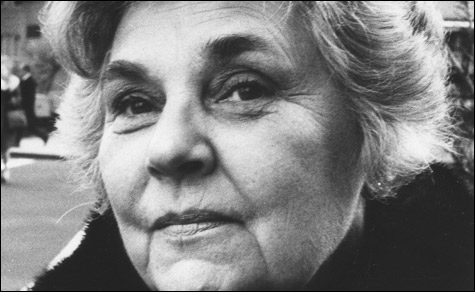
BISHOP’S DICTUM? “repeat, repeat, repeat; revise, revise, revise.” |
Although she has in recent years broken through to a wider readership, Elizabeth Bishop was always first and foremost a poet’s poet, a touchstone of uncompromised excellence and integrity, a fastidious maker of verbal occasions that become more resonant with each reading. In her lifetime (she died in 1979) these were gathered slowly — frugally, one might say — into thin books bearing titles like A Cold Spring, Questions of Travel, and Geography III, all of which took on the status of classics even while the ink was still damp.
Bishop aspired to absolute craft, an idea of perfection, her dictum succinctly encoded in her poem “North Haven,” which she wrote in memory of her dear friend Robert Lowell: “repeat, repeat, repeat; revise, revise, revise.” Such aspiration requires the most implacable exertion of control, and it assumes the maker as ultimate arbiter. But it was this very assumption that was called into question several years back when New Yorker poetry editor Alice Quinn published Edgar Allan Poe & The Juke Box: Uncollected Poems, Drafts, and Fragments. That set off a minor literary ruckus, volleys exchanged between those who saw any hitherto unseen work by Bishop as bounty and those who felt the poet’s core æsthetic intentions had been ignored. I would put myself in the second camp — such publication seems a violation of the very principle that brought us the dazzling rightness we so admire — but at this point I won’t argue further, citing instead the old adage about the horses having fled the barn or the other one about the milk having been spilt.

Maker of occasions and fashioner of thin books that Bishop was, I wonder how she would greet the publication now of the thick Library of America compendium. It’s as close as an American writer can come to being canonized — and even modest Bishop would not have repudiated that: to be modest is not to be unambitious. On the other hand, a volume like this enfolds an austere private practice into a numbingly public aura. My guess is that she would have been ambivalent about the whole business, and possibly distressed about the display of her correspondence.
But if anything could have allayed her anxieties, it would have been the knowledge that her editors were her friends Robert Giroux (who was also her editor at Farrar, Straus and Giroux) and Lloyd Schwartz (who’s the Phoenix’s classical-music critic). The two have been scrupulous to the highest degree, fashioning a presentation that honors her greatness as a poet (with special attention paid to her careful sequencings) and at the same time reveals her range as a writer of stories, reportage, and essays, along with her gifts as a translator and a free-spoken correspondent.
The poetry selection, which includes along with the work from the published books a generous sampling from the work that Quinn gathered, reminds us not only how rare the truly realized poem is but also that the ideal marriage of craft and expression creates art that never does not feel fresh. To enter a Bishop poem with the mind and senses wide open is to be scrubbed back to first principles; the order of things feels reminted. A reviewer could lose a morning dithering over which few lines to quote. Here, taken almost at random, is a small descriptive section from “At the Fishhouses”: “The water seems suspended/above the rounded gray and blue-gray stones./I have seen it over and over, the same sea, the same,/slightly, indifferently swinging above the stones,/icily free above the stones,/above the stones and then the world.” Even in so short an excerpt, Bishop’s poetical qualities are in high evidence. We find precision — phrasing so right it seems a part of the rightness of nature; but we find also the unobtrusive presence of a comprehending sensibility that knows to write “slightly, indifferently” and thus bring human tension into what could otherwise almost pass for detached observation. Consider this degree of visionary care, and then project it across a full geographical and moral spectrum, each expression making its claim in its own terms, and you begin to get some idea of Bishop as poet.
But Bishop was also a prose stylist of great distinction, her sentences marked by a no less subtle titration of feeling into observation, her grip on the world exhibiting the same steady deep regard. Reading her — and I don’t find this with many writers of high-resolution prose — I get a sense of an experience having been fathomed fully before it makes its way, word by word, onto the page. Bishop wrote wonderfully about her childhood, about Brazil (including a tour de force documentary account of her travels with Aldous Huxley), her friendship with Marianne Moore, among many other subjects, but once again a short excerpt will have to serve, this from a memoiristic essay called “Primer Class”: